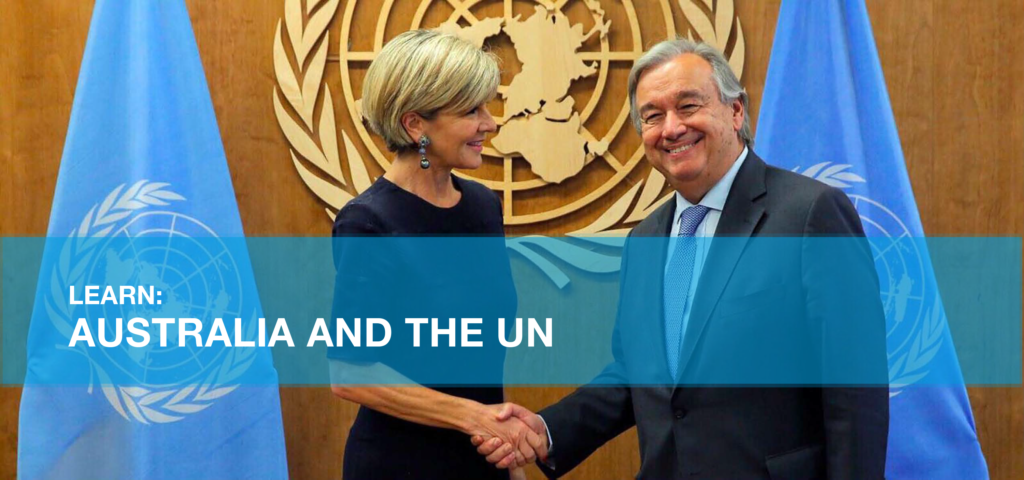
 A Founding Member
A Founding Member
Australia is a founding member of the United Nations and has consistently supported the UN’s role in world affairs since this time. Australia was an active participant at the 1945 San Francisco Conference, during which the UN Charter was negotiated. Australia’s delegation to this Conference was led by then Deputy Prime Minister Mr. Frank Forde and Minister for External Affairs Dr. Herbert ‘Doc’ Evatt, and these two individuals played a significant role in drafting the charter.
According to Australia’s Department of Foreign Affairs, since 1945 Australian foreign policy has been informed by the underlying principles and purposes of the United Nations: to maintain international peace and security, to develop friendly relations among nations, and to achieve global cooperation. Australia regards the United Nations as an essential forum through which to influence world affairs, promote a stable international framework, defend Australia’s security and sovereignty, pursue trade and economic interests and promote Australian values. Australia has made important contributions to UN activity for more than 60 years, including in the areas of peace and security, human rights, development assistance and social, economic and environmental affairs.
Australia also provides significant financial support to the UN. The UN system is funded by member states’ dues and voluntary contributions and through donations from the private sector, other national and multilateral agencies, and individuals. Australia is the 13th largest contributor to the UN budget and provides modest support to UN peace operations. Australia also provides voluntary funding to many UN agencies. The level of support to UN agencies is based on their relevance to the priorities of Australia’s aid program, their focus on the Asia–Pacific region, and their continued effective performance.
For an analysis of Australia’s performance against UN norms and standards, please download Australia and the UN: Report Card
For more information on Australia’s involvement in the United Nations, visit the website of the Department of Foreign Affairs and Trade.
Bid for Human Rights Council 2018-2020
In June 2013, Australia announced its first-ever bid for election to the Human Rights Council for 2018 – 2020.
An intergovernmental body within the broader UN family, the Council is comprised of 47 Member States and is responsible for responding to human rights violations and emergencies.
To become a member of the Council, states must demonstrate the highest standards in the promotion and protection of human rights and receive the support of the majority vote of the General Assembly.
Current member states serving in Australia’s ‘Western European and other’ regional group include Austria, France, Germany, Ireland, Italy, United Kingdom and the United States.
Key areas of interest to Australia include:
- Gender Equality – a prerequisite for development
- Good Governance –essential in promoting a positive human rights environment
- Freedom of Expression and Association – a key ingredient for democracy, development and a human rights-orientated society
- Transparent working methods for the Human Rights Council – ensuring the Council is impartial, equitable and pragmatic to encourage clarity and predictability
Further information:
- United Nations Human Rights
- DFAT, ‘Australia and Human Rights’
- Australian Permanent Mission to the Office of the UN, Geneva